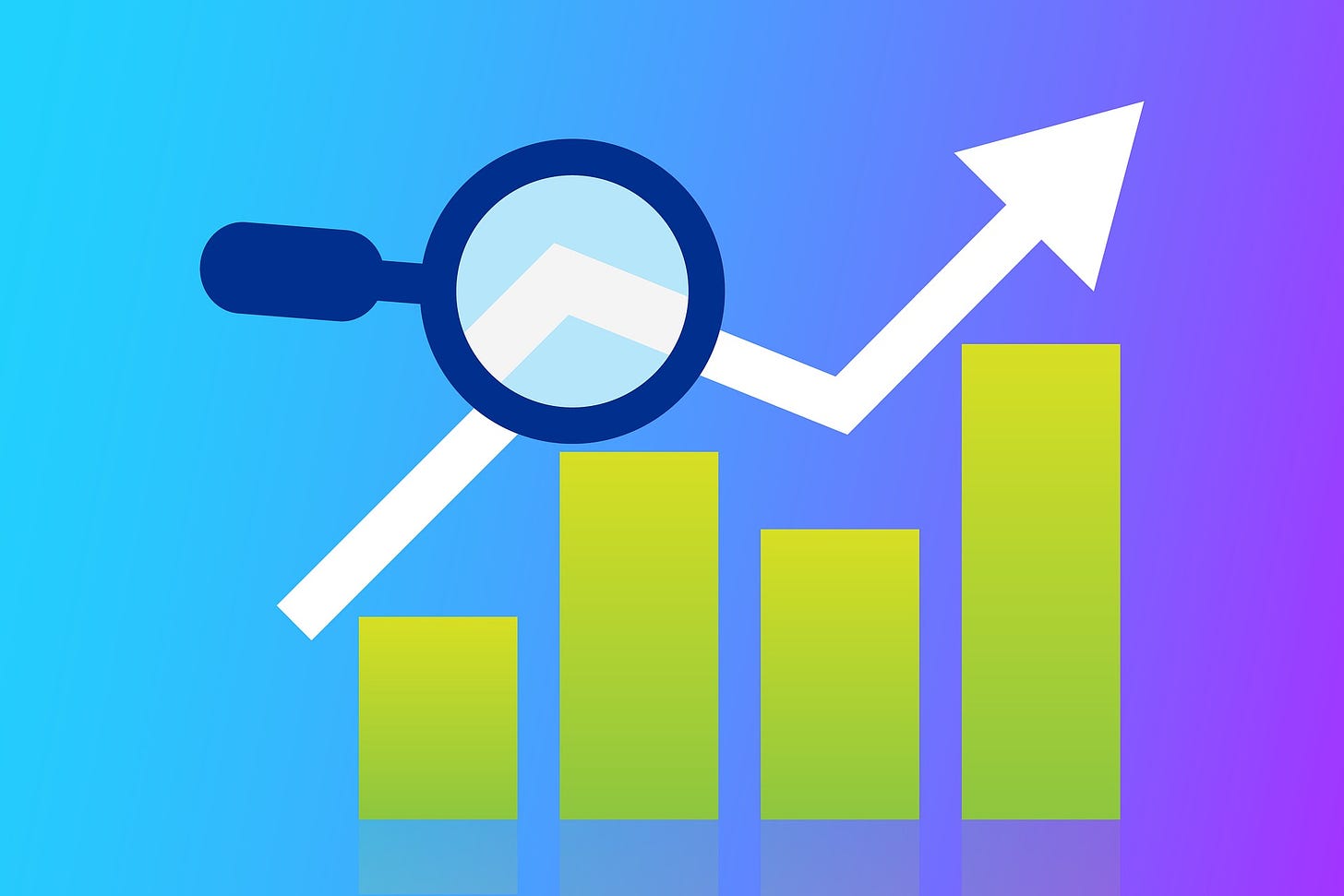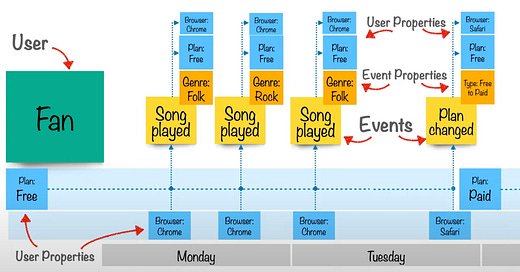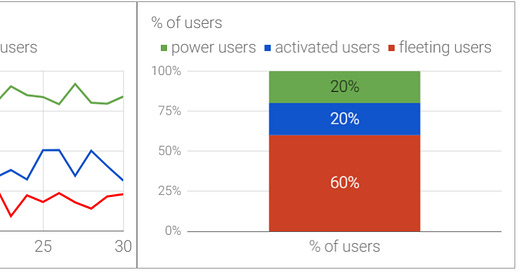

Discover more from Data Analysis Journal
Expert Insight: Trenton Huey - Learning Every Day - Issue 22
An insightful look into the world of data analysis and what makes a great team in this interview with a product and data expert.
It’s Wednesday, and I’m back with another edition of the Data Analysis Journal for you to explore news, events, insights, and resources in the data analysis world.
Today I am excited to share an interview with a data expert who walks us behind the scenes of data analysis - common analytical projects, expectations from candidates during hiring interviews, team values, personal learnings, wisdom, and more.
Trenton is the Director of Data at Vida Health. Previously, he had roles at tech companies such as Zynga, as Head of Analytics at Life360, and as an Instructor and Speaker at General Assembly. Currently, he is helping people live healthier lives via data applications.
Trenton also co-founded an independent animation studio and continues to advise startups (check out Rupert, a platform that improves data analysis backlog).
Every time I speak with Trenton, I am impressed so much by his sense of product analysis, his experience and expertise, and his love for data. I was extremely excited that he agreed to an interview and shared his values and views.
What skills/qualities you look for when interviewing candidates for a data analyst position?
It depends on a role and level - is it more data analysis or data science focus? Entry or mid-level?
Overall, when interviewing candidates, I focus on 4 different dimensions:
Technical Skills
Business Acumen / Product Sense
Communication
Curiosity - a wow factor. Do they go above and beyond?
For junior candidates without much professional experience, I focus on technical skills. I expect them to have strong SQL, basic Python (or R). Regarding SQL, it’s all about fundamentals. Do they understand the structure, how to access data, how to join data, and how to structure the query? Technology is constantly changing, so I’m worried less about terminology or syntax. But I do expect candidates to have a strong grasp of the basics - how do joins work, or how to describe the resulting dataset in real-world terms. Do they ask the right questions?
For more senior positions I delve deeper into business acumen, developed product sense, communication level, and curiosity. The advice I give to junior candidates looking to mature to senior level is to focus on developing strong technical skills through the lens of the business. It’s important to explain technical complexities to non-technical users, how to make product decisions, and interpreting analyses from the business perspective.
What are the common data analysis projects?
Data analysis projects can be broken down into 2 frameworks: the value creation continuum and operational work cycles.
The Value Creation Continuum follows 4 interrelated, iterative stages: organizing data, reporting, deep dives, and modeling. Earlier in your career, you typically spend more time on the first 2 steps organizing data and reporting on metrics. This enables analysts to develop strong fundamentals by conducting data discovery into business problems.
Analytics Operational Work Cycles tend to fall into 2 buckets of interdependent workstreams: planned and unplanned (ad-hoc) analyses. Planned work is usually driven by quarterly planning initiatives and includes tracking design, dashboards, and modeling. Unplanned (ad-hoc) work is usually driven by unforeseen or unexpected findings to figure out unknowns, explore new areas, and/or issues.
What are the values you foster within your team?
Specific values depend on the company and culture that you are trying to develop. But I have 3 general mantras:
Always think about the greater good. The best analytics efforts consider implications that go beyond the direct team or immediate priorities. They make impacts that last long-term or extend insights to teams across the company. The more that analyses consider the big picture and can be elevated from behind the scenes, the more likely that results will help the greater good.
Be Better. Analytics is all about using data to optimize, improve, or automate intelligent actions. It’s important that teams strive to be better, whether developing new skills, learning new concepts, or improving operational process efficiencies.
People Always.- Data analytics and data science deal with lots of charts, numbers, and stats. It’s extremely important to really think about what the numbers represent - people’s behaviors. The more that projects consider the human aspects, the more engaged your stakeholders will become.
If you had to start over your career, what would you do differently?
I would seek out more advice from industry experts, especially those who might not work directly with data. I wish I had spent more time actively learning from senior team members across data, product, and business teams to understand how different functions interact (and how they use data). I learned this over time, but it would have been helpful to develop these partnerships earlier. For example, this post from another data/analytics leader who I’ve learned many insights from Building data-driven organizations, Part 2: Why organizations fail to make data-driven decisions.
Networking is extremely important, mainly because it enables learning beyond the familiar. In Silicon Valley, everyone is smart, but networking introduces new perspectives to compound these smarts!
Make sure to subscribe to read more expert insights and case studies on data analysis.
🎓 Level Up
Certifications, internships, schools, and courses.
The registration is open for the 4th Annual Women in Data Science (WiDS) Datathon happening in January. This hackathon will be focusing on creating models to classify whether patients have been diagnosed with a certain type of diabetes which could inform treatment in the ICU.
A new free 4 hours course is launched on Kaggle Intro to Deep Learning. Signup to learn how to use TensorFlow and Keras to apply neural networks to real-world datasets.
If you are looking for serious SQL training, hurry up. This Friday starts a virtual Bootcamp Introduction to SQL for Business & Finance. It’s paid training suitable for all levels. No prior programming experience required.
Thanks for reading, everyone. Until next Wednesday!
Subscribe to Data Analysis Journal
Where product, data science, and analytics intersect. Trusted by tens of thousands of data scientists around the world











